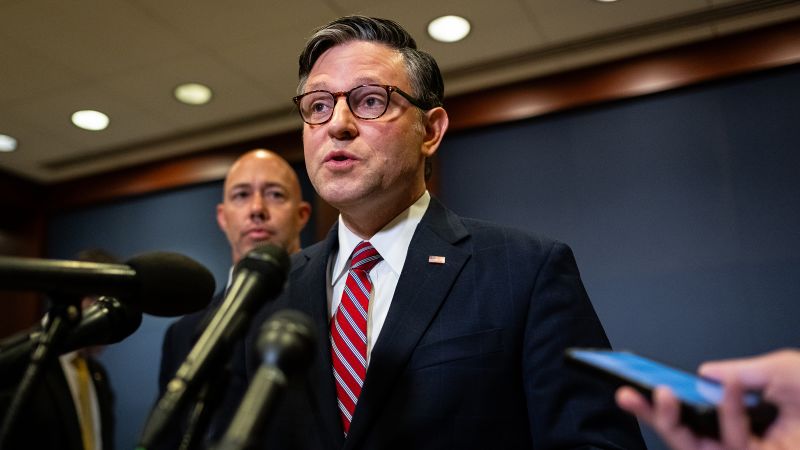GOP Seeks to Tighten Classified Information Access Amidst White House Concerns

Following a recent announcement by the White House regarding potential limitations on intelligence sharing with Congress, House Republican leadership is actively exploring new strategies to manage and restrict access to classified information on Capitol Hill. This move signals a significant shift in the dynamics between the executive and legislative branches, raising questions about national security oversight and the flow of crucial information to lawmakers.
The White House's decision, reportedly stemming from concerns about classified information leaks and potential mishandling, has prompted swift reactions from Republican members. Leaders are now considering a range of measures, including stricter vetting procedures for lawmakers granted security clearances, enhanced monitoring of classified document handling, and potentially limiting the scope of information shared with certain committees.
“We need to ensure that classified information is handled with the utmost care and responsibility,” stated a senior House Republican aide, speaking on background. “However, it's also critical that Congress retains the ability to effectively fulfill its oversight responsibilities. We’re working to find a balance that protects national security while maintaining essential congressional scrutiny.”
The debate goes beyond simple restriction. Some Republicans argue that the current system is already overly cumbersome and that new limitations could hinder Congress's ability to conduct necessary investigations and hold the executive branch accountable. Others emphasize the need for a comprehensive review of existing security protocols and a commitment to improved training for all members handling classified materials.
Democrats have criticized the potential changes, arguing that they could politicize the intelligence community and undermine national security. “Restricting access to crucial information will only weaken our ability to respond to threats,” said a Democratic spokesperson. “Congress needs to be fully informed to effectively oversee the executive branch’s national security operations.”
The White House has yet to release specific details about its planned limitations on intelligence sharing. However, officials have indicated that the measures are intended to address legitimate concerns about the protection of classified information. They have also expressed a willingness to engage in discussions with Congress to find a mutually acceptable solution.
Potential Impacts and Future Considerations:
- Oversight Challenges: Restricted access could hamper Congress’s ability to conduct oversight of intelligence agencies and national security programs.
- Political Ramifications: The debate could further exacerbate partisan tensions and politicize the intelligence community.
- Security Protocols: A review of current security protocols and enhanced training for lawmakers is likely.
- Executive-Legislative Relations: The situation highlights the ongoing tension between the executive and legislative branches regarding classified information access.
The coming weeks are expected to see intense negotiations between House Republicans, the White House, and potentially Senate members, as lawmakers grapple with the complex challenge of balancing national security concerns with the fundamental principles of congressional oversight. The outcome of these discussions will have significant implications for the future of intelligence sharing and the balance of power in Washington.






